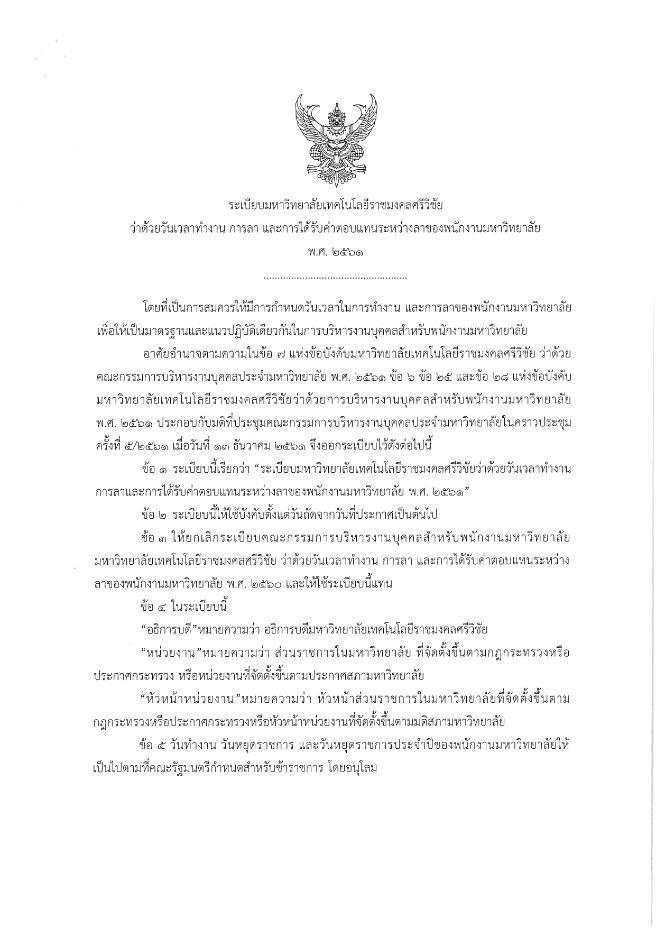Reporters: Asst.Prof. Saowanee Chaipech, Dr. kittichon Utaynapun, Asst.Prof. Sudanai Krualee, Mr. Ugrit Chammari
Evidence Date: during 2023 Jan-Dec
Related SDGs:

Related Indicators: 12.2.7
Details:
The announcement from Rajamangala University of Technology Srivijaya on sustainable consumption and production since A.D.2022.
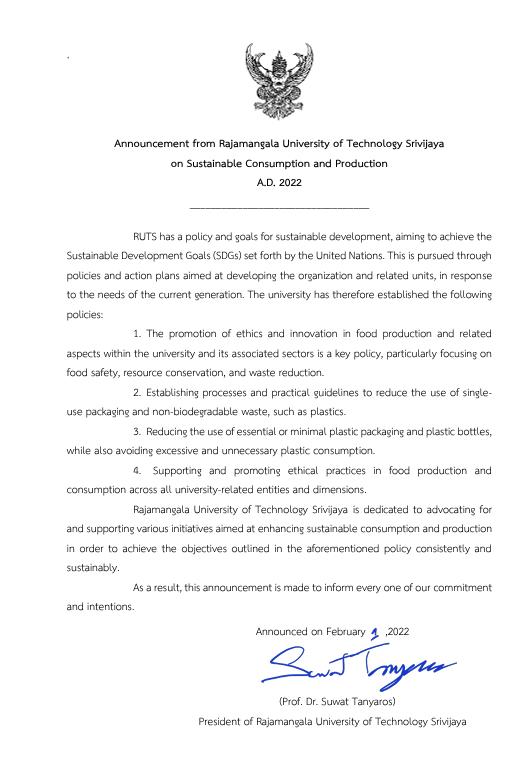 |
Evidence I :
Rajamangala University of Technology Srivijaya enhance its supply chain by collaborating with local farmers to source crab sustainably, ensuring that the procurement process supports local economies while minimizing environmental impact thereby adding significant value to the community. This partnership not only supports local economies but also fosters entrepreneurial opportunities for farmers, empowering them to adopt sustainable aquaculture practices that improve the quality of their harvests. By facilitating the purchase of crab directly from these farmers, the university can create a model for responsible consumption that encourages students to engage in and learn about sustainable practices. This initiative can inspire entrepreneurial ventures among students, such as developing sustainable food products or businesses focused on ethical sourcing, creating a market for locally produced goods. Beside that, RUTS further enriches this value chain by integrating educational programs by involving the farmers in “Agriculture Fair” to provide students and farmers with skills in sustainable farming techniques, business management, and marketing. This holistic approach not only promotes responsible consumption but also strengthens community ties, enhances food security, and drives innovation within the local economy.
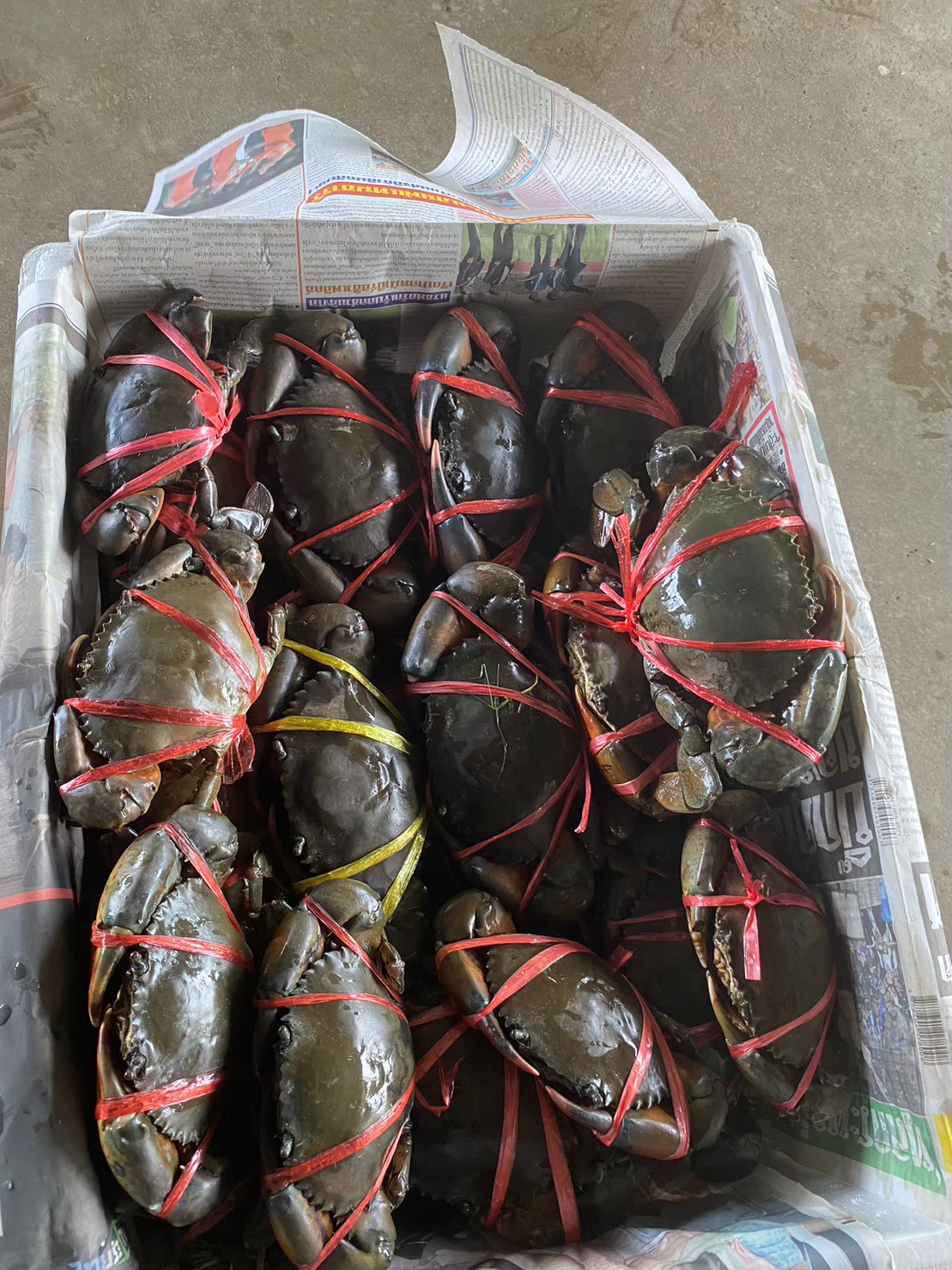 |
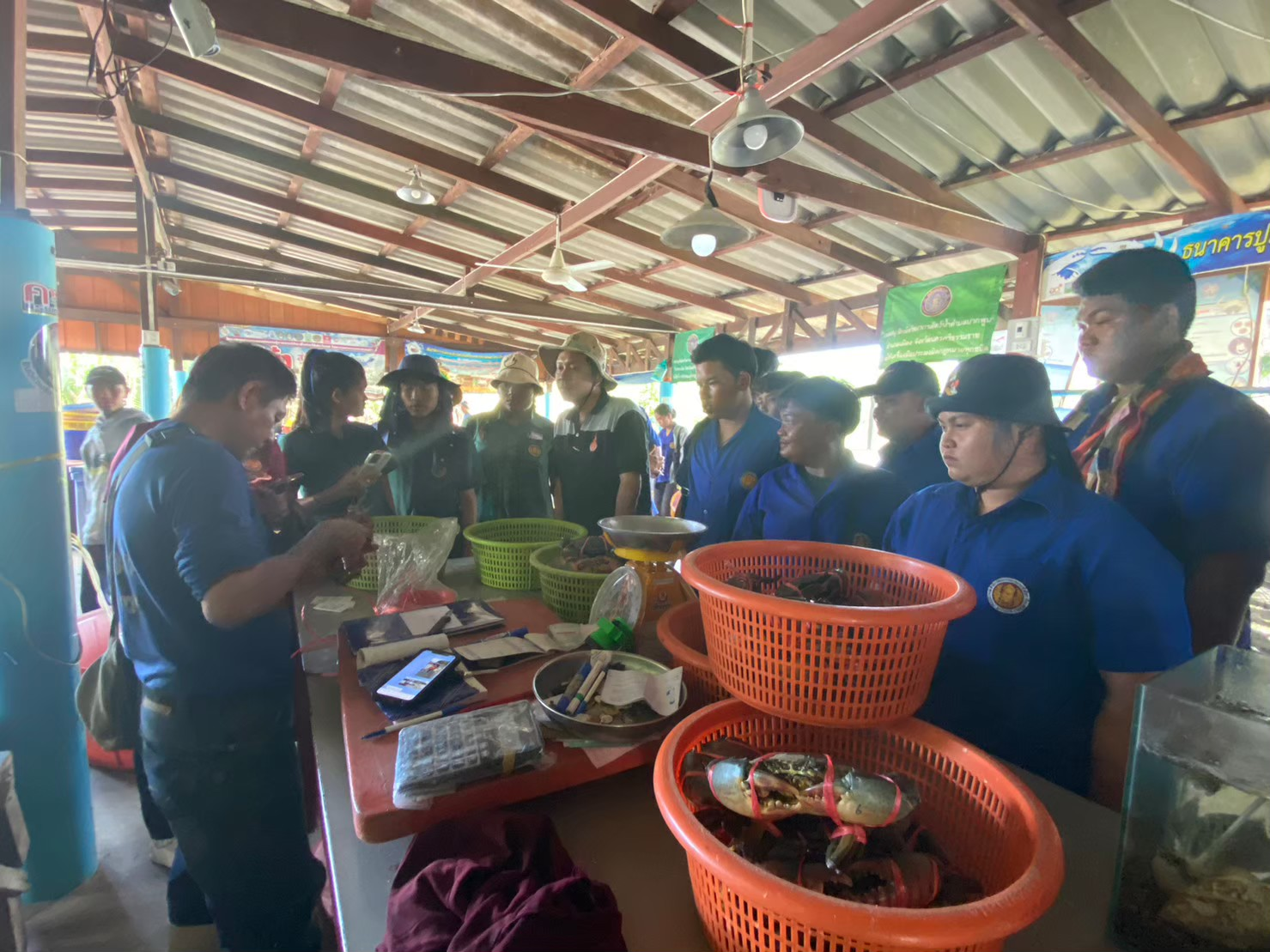 |
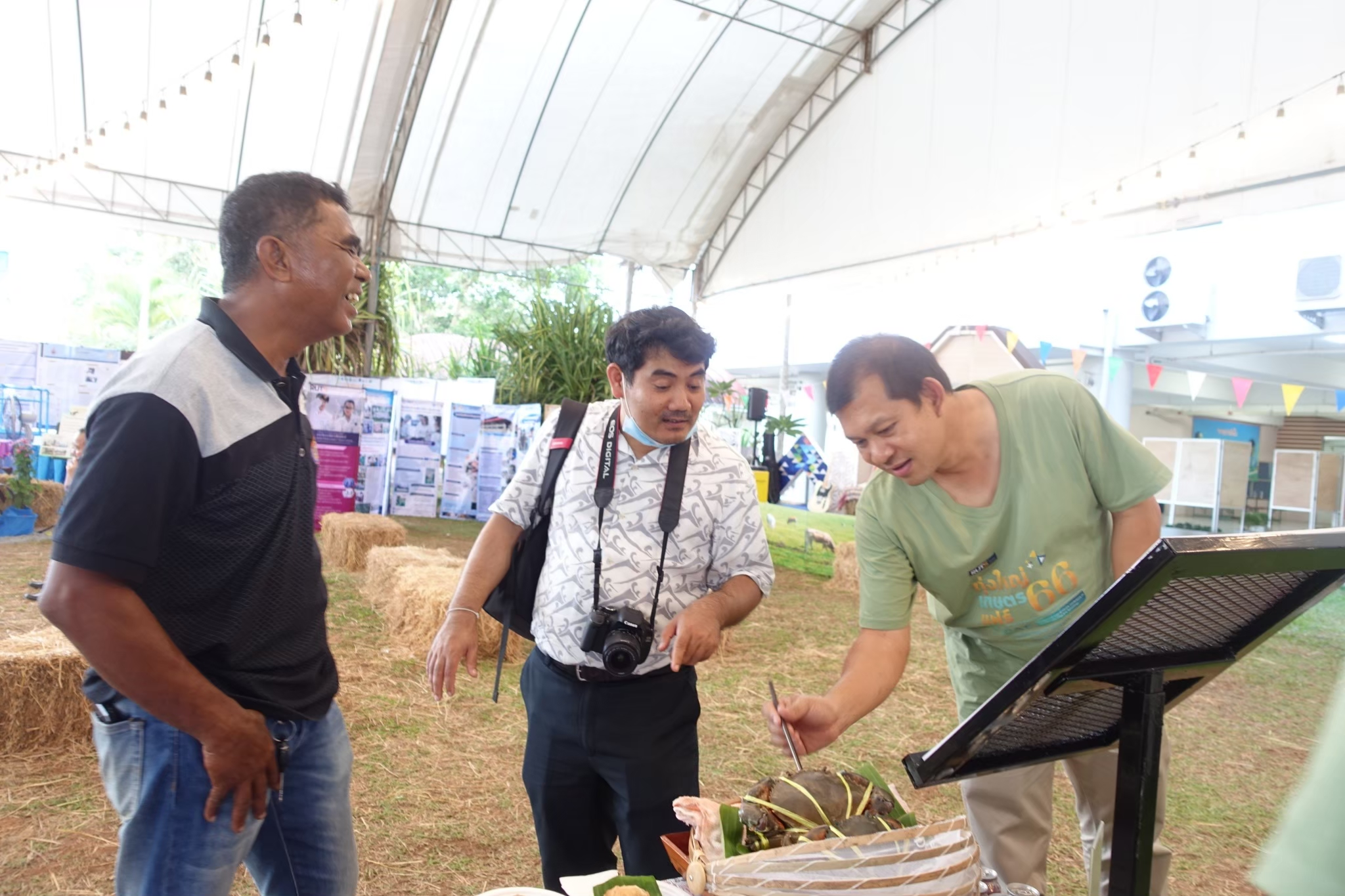 |
 |
https://agr.rmutsv.ac.th/ruts/sdgs/extend
Evidence II
As one of the most favored seafood choices worldwide, shrimp presents a unique opportunity to promote sustainable farming practices that meet growing consumer demand while ensuring environmental stewardship. By partnering with local farmers, RUTS helps them adopt responsible aquaculture techniques that enhance shrimp quality and sustainability, ultimately benefiting both the environment and local economies. This collaboration not only enables farmers to enhance their practices but also provides valuable educational opportunities for university students. Highlighting sustainable shrimp farming aligns with by fostering responsible consumption patterns and minimizing waste within the supply chain. By facilitating direct purchases of shrimp from local farmers, the idea can establish a transparent supply chain that increases local economies and helps students appreciate the significance of sustainable practices in food production. Through these initiatives, it can play a crucial role in promoting responsible consumption and production while reinforcing community connections and improving food security in the area.
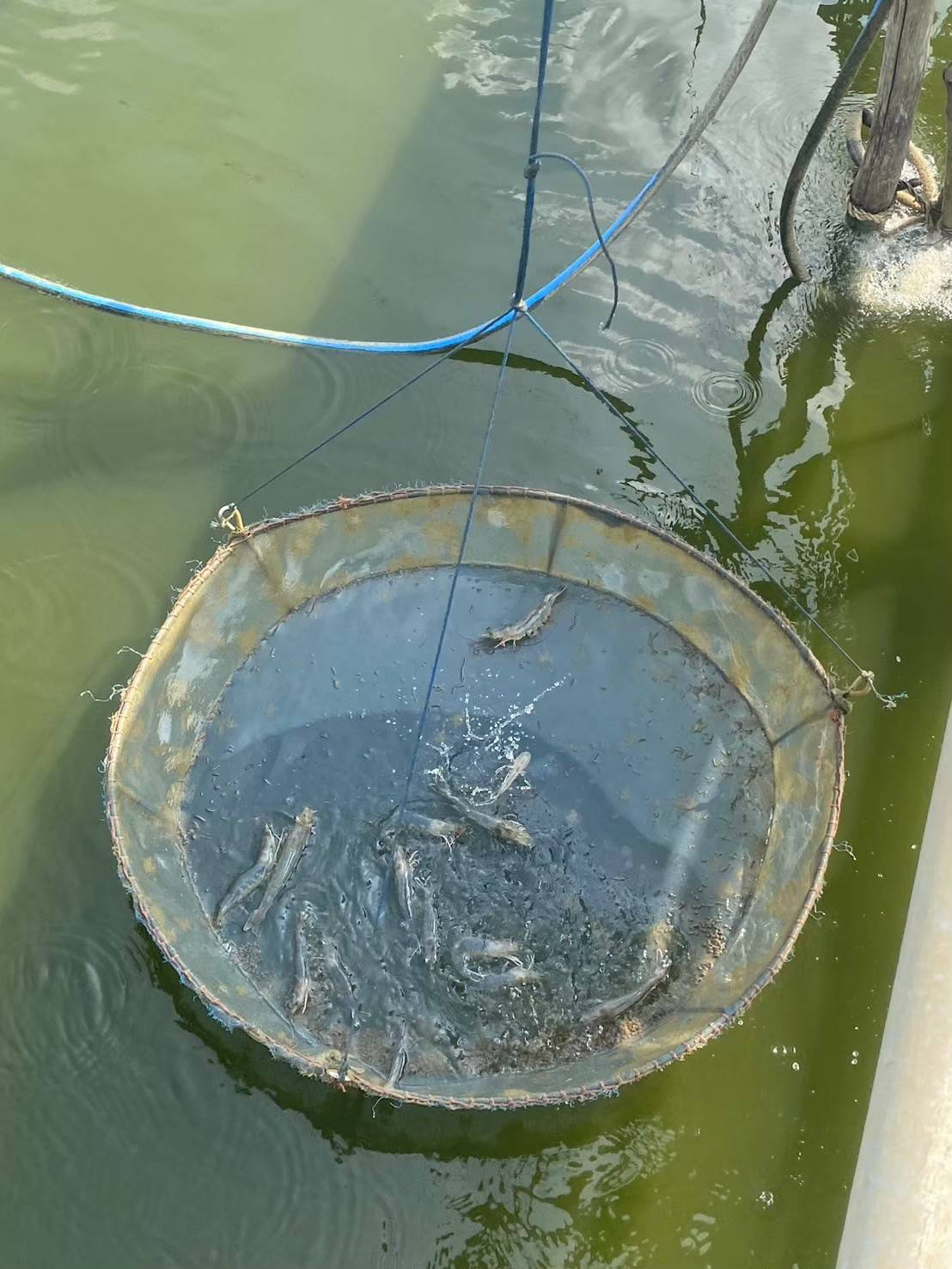 |
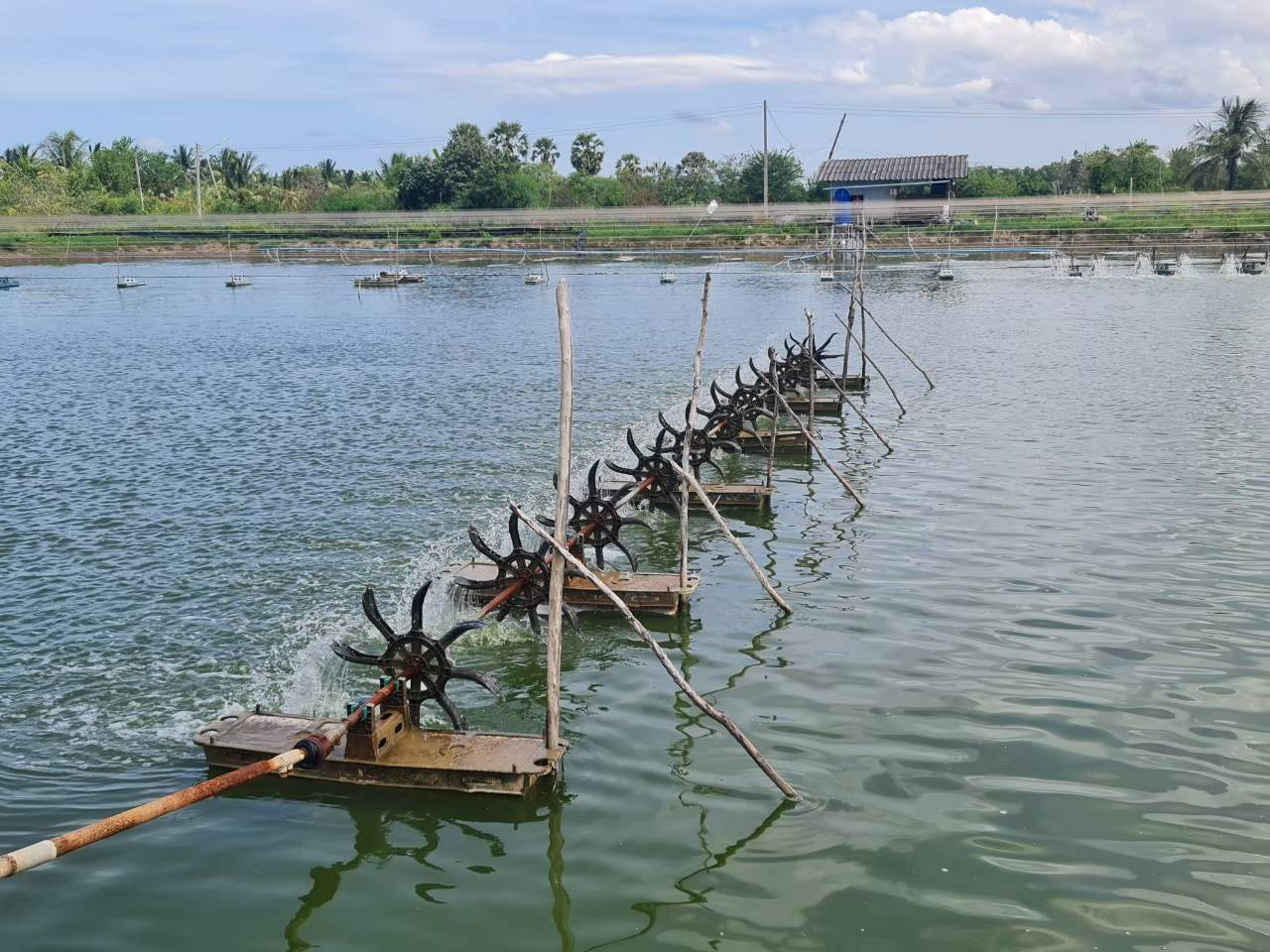 |
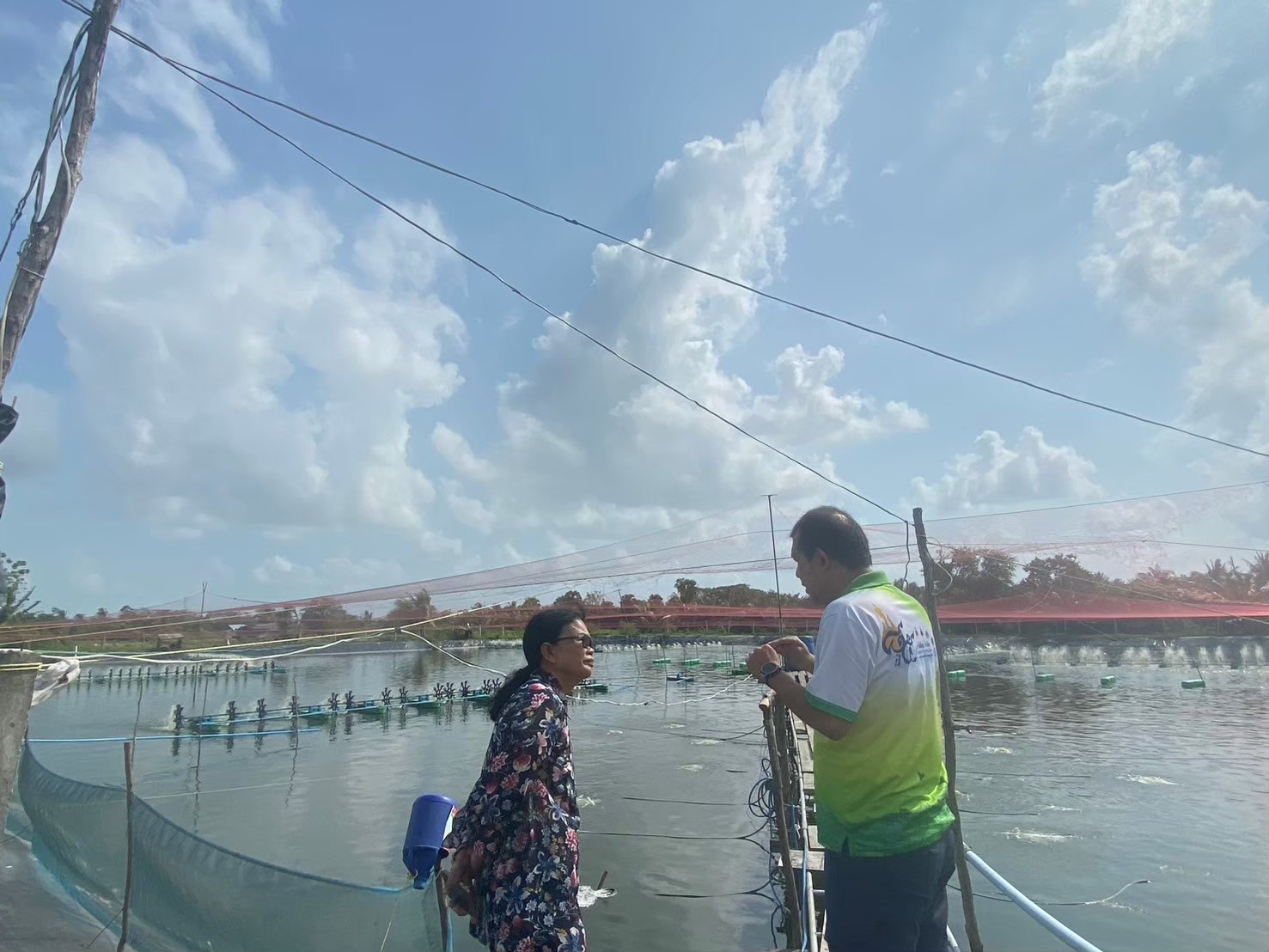 | |

